
Conyers Middleton was an English clergyman. Though mired in controversy and disputes, he was also considered one of the best stylists in English of his time.

Christopher Wordsworth was an English intellectual and a bishop of the Anglican Church.

Henry Alford was an English churchman, theologian, textual critic, scholar, poet, hymnodist, and writer.
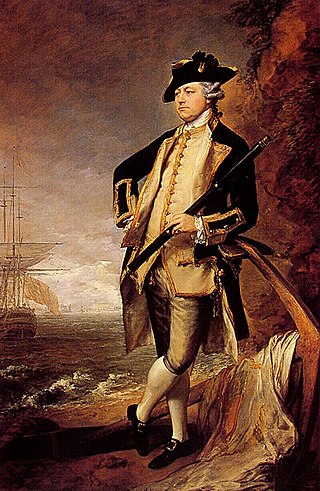
Vice Admiral Augustus John Hervey, 3rd Earl of Bristol, PC was a Royal Navy officer and politician. He commanded the sixth-rate HMS Phoenix at the Battle of Minorca in May 1756 as well as the third-rate HMS Dragon at the Capture of Belle Île in June 1761, the Invasion of Martinique in January 1762 and the Battle of Havana in June 1762 during the Seven Years' War. He went on to be Chief Secretary for Ireland and then First Naval Lord.
Thomas Hartwell Horne was an English theologian and librarian.

Sir William Smith was an English lexicographer. He became known for his advances in the teaching of Greek and Latin in schools.

Sir Henry Ellis was an English librarian and antiquarian, for a long period principal librarian at the British Museum.

Stretham is a village and civil parish 4 miles (6 km) south-south-west of Ely in Cambridgeshire, England, about 74 miles (119 km) by road from London. Its main attraction is Stretham Old Engine, a steam-powered pump used to drain the fens. The pump is still in use today although converted to electric power. It has open days throughout the year.

Anthony Askew (1722–1774) was an English physician and is best known for having been a book collector. His collection was purchased by the British Museum and books purchased by George III of Great Britain were added to the King's Library.
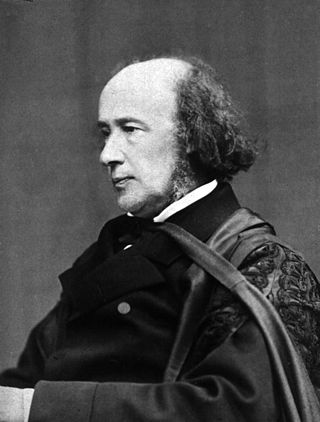
Sir Henry Wentworth Dyke Acland, 1st Baronet, was an English physician and educator.

Humfrey Wanley was an English librarian, palaeographer and scholar of Old English, employed by manuscript collectors such as Robert and Edward Harley. He was the first keeper of the Harleian Library, now the Harleian Collection.

Sir Norman Moore, 1st Baronet, FRCP was a British doctor and historian, best known for his work with the Royal College of Physicians and his writings on history of medicine. Born in Higher Broughton, Salford, Lancashire, the only child of abolitionist and social reformer Rebecca Moore, née Fisher, of Limerick and the noted Irish political economist Robert Ross Rowan Moore, Moore worked in a cotton mill before studying natural sciences in Cambridge and then going on to study comparative anatomy at St Bartholomew's Hospital.

Carl Gottfried Woide, also known in England as Charles Godfrey Woide, was an Orientalist, a biblical scholar and a pastor.
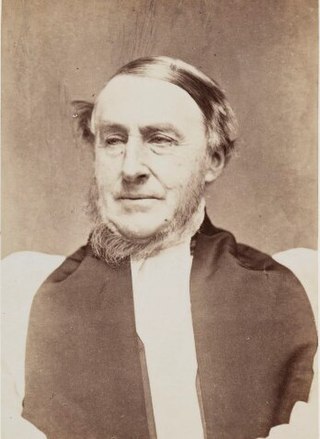
Lord Arthur Charles Hervey was an English bishop who served as Bishop of Bath and Wells from 1869 to 1894. He was usually known by his aristocratic courtesy title, "Lord", rather than the style appropriate to a bishop, the Right Reverend.
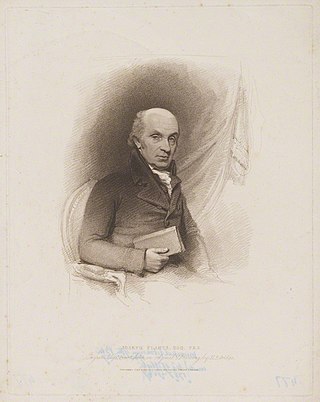
Joseph Planta FRS, aka Joseph von Planta, the Principal Librarian of the British Museum for the first quarter of the nineteenth century.
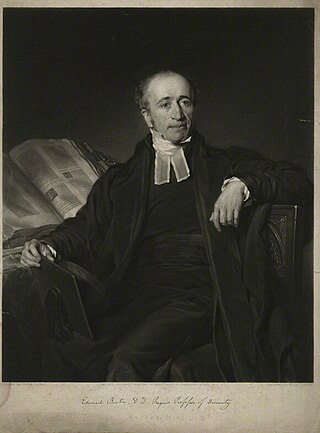
Edward Burton was an English theologian, Regius Professor of Divinity at Oxford.

Whitworth Porter (1827–1892) was an English Major General of the Royal Engineers, known also as a historical writer.
Ven. Henry Cotton was an English Anglican divine, ecclesiastical historian and author.
Edward William Grinfield (1785–1864) was an English biblical scholar.
Edmund Venables was an English cleric and antiquarian.
















